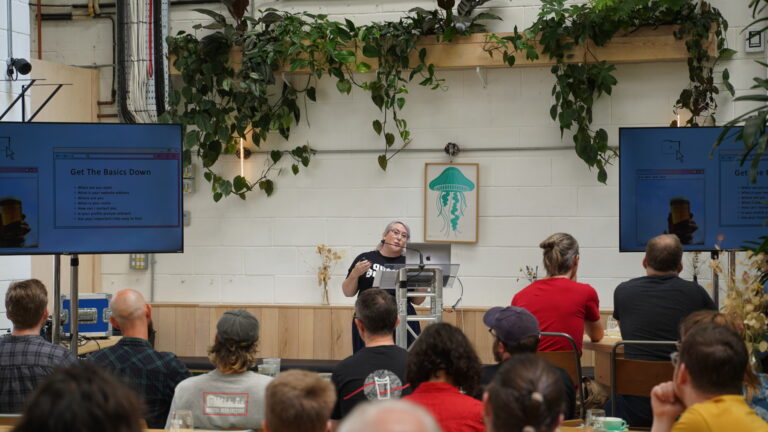Mikkeler may have been in the firing line on this occasion, however, reports of bullying, harassment and discrimination within the industry at large will come as no surprise to many, following the well-documented “culture of fear” complained of at BrewDog together with a slew of personal stories shared by Brienne Allan of Notch Brewery on Instagram.
With the advent of various movements in the culture at large, there has been a huge shift in how workers, investors and the public expect business to be conducted. Accountability, transparency and authentic actions designed to earn trust, build respect and drive forward a welcoming, inclusive culture are the bulwark in achieving this modern standard.
As in every aspect of life, things go wrong from time to time and for brewers who do not match good intent with steadfast commitment to dealing with inappropriate conduct or behaviours in their organisations, the reality is that the reckoning in the public square of Twitter and other social media can be quick and unrelenting. Whilst in previous years employers may have sought to handle internal issues with an eye squarely on the potential risk of claims being brought by the complainant, in 2021, they need to be alive to the potential wider scrutiny from stakeholders and the public at an early stage, which means the reputational stakes could not be higher.
Going forward, there are some key actions employers in the brewing industry can implement to create and embed a more inclusive and diverse culture and consequently a happier, psychologically safer and more productive workforce.
Adopt a Code of Conduct
There has been a lot of discussion concerning breweries drawing up codes of conduct which set out a business’s core values and set standards on the type of behaviour it expects within its workplace and the implications for those who breach the code. A suggestion was made prior to Mikkeler’s recent beer festival by eight UK-based breweries who joined together seeking to influence a change in the industry’s culture that they should “lay the groundwork to draw up a code of conduct for the industry which sets clear obligations on breweries going forward”. Although this did not materialise given the octet’s about-face 24 hours later by withdrawing from the festival altogether and apologising after a social media backlash, it may be that an industry-wide code of conduct which each brewer must commit to its aims and standards would be welcome.
In the meantime, for smaller breweries who might not currently have the means for a legal/HR function, they may participate by joining the “Brave Noise” global beer collaboration and drawing from the code of conduct. In addition, breweries could adapt Mikkeler’s recent action plan (freely available on their website and well worth a look) for their own business to foster a better workplace culture.
Employers should not shy away from being open to criticism and acknowledge there will always be ways to improve and build a better business.
Daniel Stander, Vedder Price LLP
Temperature test and embed values
Employers should not shy away from being open to criticism and acknowledge there will always be ways to improve and build a better business. Carrying out staff surveys (or soliciting informal feedback) can help a business understand whether there are issues within pockets of the business or if they are more widespread. Welcoming feedback from the workforce and showing willingness to take meaningful action on problems which arise is an important feature of helping break down any toxicity in the workplace.
Equally, the values which a brewery sets out in its code of conduct should be a living, breathing thing, not simply another HR policy which is left to go dusty on the bookshelf. Businesses who work to embed their values across the employment lifecycle, starting with recruitment and induction procedures through to appraisals and internal promotion decisions, stand to benefit from a workforce that is engaged and committed to the success of the organisation as a team.
Implement robust whistleblowing measures
A key aspect of removing the toxicity from a workplace culture is to allow individuals to report concerns regarding the actions of others within the brewery, without fear of retaliation. The whistleblowing landscape in the UK is developing fast, and many employers are looking for ways to drive more effective reporting, and to signpost this effectively internally. A well drafted procedure accompanied by regular trainings to managers will help enable employers to investigate and deal properly and sensitively with allegations of wrongdoing. With changes to the legal landscape on the horizon, employers should review and update their whistleblowing compliance to ensure it is fit for purpose and that the fundamentals are in place, including considering how whistleblowing disclosures will be made going forwards, for example, by hotline or by digital platform.
Put wellbeing on company’s risk register
It took a global pandemic to do it, but mental health and wellbeing has rocketed to the top of employer’s agendas. At the same time, a recent study has found that two in five employees have experienced problematic behaviour, such as bullying, harassment or discrimination at work, with 42% confirming that ‘toxic workplace culture’ has affected their mental health. The economic impact of presiding over poor mental health has been reported to cost UK businesses up to £45 billion a year – this includes absenteeism and presenteeism issues which arise through an unchecked toxic culture. As a result, by any economic assessment, it literally pays to treat wellbeing as an urgent matter for an employer’s risk register and to work at embedding a psychologically safer working environment from the outset which builds in preventative measures to help employees build up their mental fitness so they can be better prepared for the long-term, rather than allowing issues to build up until the damage has been done.
Daniel Stander is an employment lawyer at Vedder Price LLP







